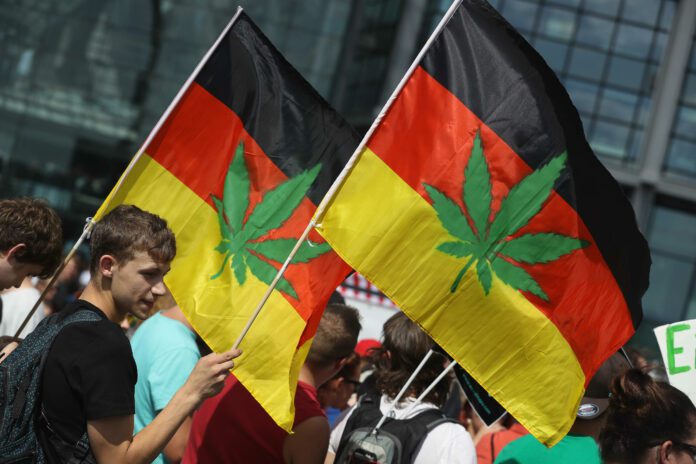In a historic move, Germany has joined the ranks of countries that have legalized cannabis for personal use, marking a significant shift in drug policy within the European Union. This decision, passed by Germany’s parliament, allows individuals to possess and cultivate cannabis under specific conditions, aiming to curb the black market, ensure better protection for young people, and align with a more progressive approach to drug use.
After a heated debate and rigorous legislative process, the German parliament approved a bill legalizing the possession and home cultivation of cannabis, as well as the establishment of non-profit social clubs for its distribution. This law permits adults to possess up to 25 grams of cannabis for personal use and cultivate up to three plants. Social clubs can distribute marijuana to their members, fostering a regulated environment for cannabis consumption.
Innovative Measures: Cannabis Clubs
A distinctive feature of Germany’s approach is the allowance for German residents aged 18 and over to join non-profit “cannabis clubs,” with a membership cap of 500 individuals. These clubs are authorized to cultivate the drug for their members’ personal use, starting from 1 July. This model aims to provide a safe and regulated framework for cannabis cultivation and consumption, further ensuring quality control and reducing the reliance on the black market.
Health Minister Karl Lauterbach highlighted the dual goals of the legislation: dismantling the black market and enhancing the protection of children and young people. The law specifies possession limits of 50g at home and 25g in public, with cultivation capped at three plants for private use. This regulatory framework is designed to control the quality and accessibility of cannabis, reducing the risks associated with unregulated markets.
The legalization initiative has sparked a broad discussion on its potential impacts on public health and safety. Critics, including some healthcare professionals and opposition politicians, argue that easier access could lead to increased use among young people, potentially endangering their health. However, proponents counter that regulation will lead to safer consumption practices and reduce the dangers of contaminated or overly potent products prevalent in the black market.
Economic and Social Implications
The legalization of cannabis in Germany is expected to have significant economic and social implications. By regulating the market, the government anticipates a reduction in criminal activity associated with the black market and an increase in tax revenues from cannabis sales. Moreover, the move is seen as a step towards modernizing Germany’s drug policy, reflecting changing societal attitudes towards cannabis use.
Germany’s approach to cannabis legalization places it alongside a small but growing number of countries that have adopted similar measures. This article compares Germany’s legislation with that of other EU members like Malta and Luxembourg, as well as global examples such as Canada and Uruguay, highlighting differences in regulatory frameworks and implementation strategies.
As Germany prepares to implement this groundbreaking law, several challenges loom, including regulatory details, enforcement mechanisms, and the impact on public health. The government and stakeholders must navigate these issues to ensure the law’s objectives are met while mitigating potential negative consequences.
Germany’s decision to legalize cannabis for personal use represents a pivotal moment in drug policy reform. While it opens up new opportunities for economic development and social change, it also presents challenges that require careful management. As the country embarks on this new path, the world will be watching closely to see the outcomes of this bold policy experiment.

